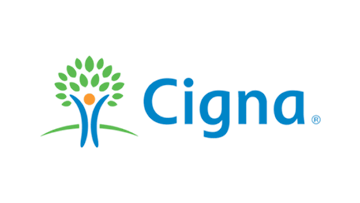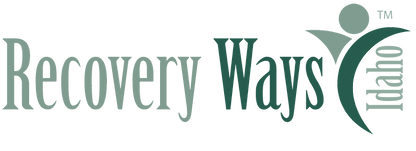
Personal Journey in Mental Health
At Recovery Ways Idaho, our journey with mental health has always been personal. We’ve seen firsthand how treatment can transform lives, fostering resilience where hopelessness once reigned. It is our mission to offer compassionate, evidence-based services to the community, particularly in places like Nampa, Idaho. Our facility has become a beacon for those seeking to navigate the complexities of mental health, offering hope and healing to countless individuals and families.
Through our comprehensive range of services, we strive to accommodate the varying needs of our clients. Whether addressing anxiety, depression, or developmental disabilities, our approach is rooted in empathy and tailored to each individual’s circumstances. We believe in the power of personal narratives to inspire change, sharing success stories while respecting the privacy and dignity of our clients.
Our work in mental health Nampa ID is driven by the belief that everyone deserves a chance to thrive. As we continue to grow, our commitment to fostering mental wellness remains steadfast, providing a supportive community for healing and personal growth.
Evidence-Based Practices
To deliver the highest standard of care, Recovery Ways Idaho utilizes evidence-based practices. This commitment ensures that our treatment strategies are not only effective but also grounded in scientific research. By employing proven methods, we can confidently address a wide array of mental health concerns and empower our clients towards lasting change.
Our team regularly engages in ongoing training to stay at the forefront of advancements in behavioral health. This dedication to professional development allows us to incorporate the latest research and methods into our practice. Our evidence-based approach encompasses cognitive-behavioral therapy, family systems therapy, and skill-building techniques, among others.
By integrating these methodologies, we create individualized treatment plans that cater to the unique needs of each client. This personalized approach ensures that we address specific challenges while empowering clients with the tools and strategies necessary for long-term success.
Our commitment to evidence-based practices imbues every aspect of our work, providing a foundation for effective intervention and support. It is this dedication that sets us apart in the mental health Nampa ID community.
Client-Centered Approach
At Recovery Ways Idaho, we prioritize a client-centered approach to mental health care. By focusing on the individual needs and goals of each client, we foster a therapeutic environment that supports meaningful change. Our compassionate team is trained to listen actively, ensuring that clients feel heard and understood throughout their treatment journey.
This client-centered philosophy extends to all aspects of our services, from individual therapy sessions to family counseling and group support. By engaging with clients in a collaborative manner, we empower them to take an active role in their recovery. This engagement not only enhances the effectiveness of treatment but also builds confidence and mastery over their mental health challenges.
Our focus on personalized care is particularly impactful in the mental health Nampa ID landscape. By respecting the diverse experiences and backgrounds of our clients, we create a welcoming environment where everyone feels valued. This inclusive approach allows us to cater to a wide range of needs, promoting mental wellness and resilience across the community.
Collaborative Care
Collaboration is a cornerstone of our work at Recovery Ways Idaho. We believe that the best outcomes are achieved through a team effort involving clients, therapists, and even family members. Through open communication and shared decision-making, we create a cohesive treatment plan that aligns with each client’s values and aspirations.
Our interdisciplinary team comprises skilled professionals with diverse expertise, including mental health counselors, psychologists, and support staff. By leveraging this collective knowledge, we can address complex mental health issues with precision and insight. Collaboration among our team members encourages a dynamic exchange of ideas, enhancing the quality of care we provide.
In the context of mental health Nampa ID, our collaborative approach fosters a network of support that extends beyond individual therapy sessions. By involving families and caregivers in the treatment process, we address systemic challenges and strengthen the overall well-being of our clients.
Community Outreach and Engagement
Our commitment to mental health extends beyond the confines of our facility, reaching into the broader Nampa community. We actively participate in outreach initiatives, collaborating with local organizations to promote mental wellness and awareness. By engaging with the community, we aim to break down stigmas associated with mental health and create a supportive environment for all residents.
Through workshops, seminars, and public speaking events, we educate community members on the importance of mental health and the resources available. Our outreach efforts also include partnerships with schools and other institutions, providing education and support to students and staff alike. This proactive approach helps identify potential mental health issues early, facilitating timely intervention and support.
Engagement with the community also allows us to gather valuable feedback, which informs our services and ensures they are relevant and effective. By maintaining a strong presence in the mental health Nampa ID landscape, we build trust and foster a culture of openness and support.
Our goal is to create a community where mental health is prioritized, and individuals feel empowered to seek help without fear of judgment. Through our outreach efforts, we work towards achieving this vision, one step at a time.
Individual Therapy and Counseling
Individual therapy is a core component of our offerings at Recovery Ways Idaho. We provide a safe space for clients to explore their thoughts, emotions, and behaviors in a confidential and supportive setting. Our experienced therapists use a variety of techniques to address the unique needs and goals of each person.
Whether dealing with anxiety, depression, or other mental health challenges, individual therapy offers clients the opportunity to gain insight and develop coping strategies. Our therapists work closely with clients to identify underlying concerns and tailor the therapy process to suit their individual journey.
In the realm of mental health Nampa ID, individual therapy serves as a vital tool for personal growth and healing. The therapeutic relationship built between client and therapist forms the foundation for positive change, encouraging self-discovery and empowerment.
Supporting Families Through Counseling
Family dynamics can significantly impact mental health, which is why family counseling is a key aspect of our services. At Recovery Ways Idaho, we understand that healing involves not just the individual but their family system as well. Through family counseling, we facilitate communication, understanding, and cooperation among family members.
Our therapists guide families in addressing conflicts, improving communication, and fostering a supportive environment. By working together, families can better understand each other’s perspectives and develop healthier relationships. This collaborative approach enhances the overall well-being of each family member, promoting collective healing and growth.
In the context of mental health Nampa ID, family counseling plays a crucial role in building resilience and strengthening support networks. By empowering families with the tools to navigate challenges collaboratively, we contribute to lasting positive change within the community.
Family counseling offers a safe space for open dialogue, helping families navigate the complexities of mental health together. Through this process, families can become stronger and more connected, fostering an environment of love, trust, and mutual support.
Skill-Building and Development
At Recovery Ways Idaho, we emphasize skill-building as an integral part of our therapeutic approach. Equipping clients with practical skills not only enhances their ability to manage mental health challenges but also promotes independence and self-confidence. Our programs focus on developing essential life skills such as communication, problem-solving, and emotional regulation.
Our team works with clients to identify areas for growth and implement strategies that align with their personal goals. Through skill-building sessions, clients learn to navigate real-world situations more effectively, fostering a sense of accomplishment and empowerment.
In the domain of mental health Nampa ID, skill-building is essential for fostering resilience and supporting long-term recovery. By providing clients with the tools to thrive in their everyday lives, we help them build a solid foundation for future success.

What are the top 3 mental health issues in Idaho?
In Idaho, like many other regions, we frequently encounter a range of mental health issues. The top three concerns we often address are anxiety disorders, depression, and substance use disorders. Anxiety and depression can affect individuals of any age and can manifest due to various causes, such as stress or life changes. Substance use disorders are particularly challenging as they often accompany or exacerbate other mental health conditions. We focus on providing tailored treatment plans to address these issues and empower our clients with coping mechanisms and supportive care. Have you experienced or observed any particular challenges related to these issues in your community?
Does NJ have free mental health services?
While we are based in Idaho, we understand that access to mental health care is a national concern. In New Jersey, several initiatives and organizations provide free or low-cost mental health services. Community health clinics, nonprofit organizations, and state-funded programs often offer support to those in need. It’s essential for individuals seeking assistance to explore these options, as they can significantly alleviate the burden of mental health care costs. If you’re considering accessing these services, it might be helpful to start by contacting local health departments or seeking referrals from trusted community organizations.
Who should I see for mental health concerns?
When addressing mental health concerns, it’s important to find the right support. Depending on the nature and severity of the issues, you might consider a licensed therapist, psychologist, or psychiatrist. Each of these professionals brings unique expertise–therapists and psychologists offer psychotherapy and counseling, while psychiatrists can also prescribe medication if needed. At Recovery Ways Idaho, we emphasize the importance of a client-centered approach, ensuring that each individual feels heard and their treatment path aligns with their personal goals. Have you considered what type of support might work best for your situation?
What is a medical ID for mental health?
A Medical ID for mental health is a form of identification that can provide vital information in emergencies. It’s particularly beneficial for individuals with mental health conditions like bipolar disorder or schizophrenia, as it can communicate important details to first responders when the individual cannot. These IDs might include information on medications, allergies, or emergency contact numbers. We encourage our clients to consider such precautions if they have conditions that might require urgent attention, as it enhances safety and ensures appropriate care during emergencies. Do you think a Medical ID might be helpful in your personal context?
Why is collaborative care important in mental health treatment?
Collaborative care is crucial in mental health treatment as it involves an integrated approach, combining the expertise of various professionals and the input of the client. At Recovery Ways Idaho, we prioritize this method, which allows for a comprehensive treatment plan that addresses multiple aspects of a client’s well-being. Collaboration involves constant communication among therapists, psychologists, and sometimes family members, ensuring that the support network is robust and effective. This approach can significantly improve treatment outcomes by aligning strategies with the client’s values and lifestyle, empowering them to achieve their personal goals. Have you experienced how teamwork can impact mental health recovery?
Resources
- National Institute of Mental Health – The National Institute of Mental Health is the leading federal agency for research on mental disorders.
- American Psychiatric Association – The American Psychiatric Association is a professional organization of psychiatrists that works to ensure humane care and effective treatment for all persons with mental illness.
- American Psychological Association – The American Psychological Association is the largest scientific and professional organization representing psychology in the United States.
- Substance Abuse and Mental Health Services Administration – The Substance Abuse and Mental Health Services Administration is the agency within the U.S. Department of Health and Human Services that leads public health efforts to advance the behavioral health of the nation.
- National Alliance on Mental Illness – The National Alliance on Mental Illness is the largest grassroots mental health organization dedicated to building better lives for the millions of Americans affected by mental illness.




